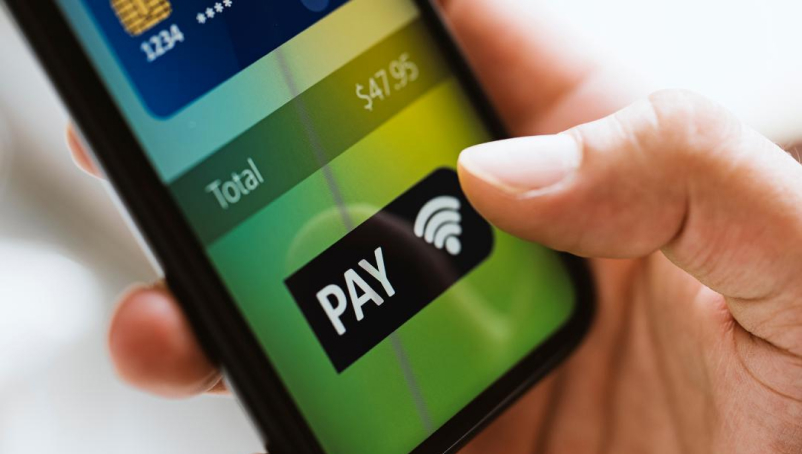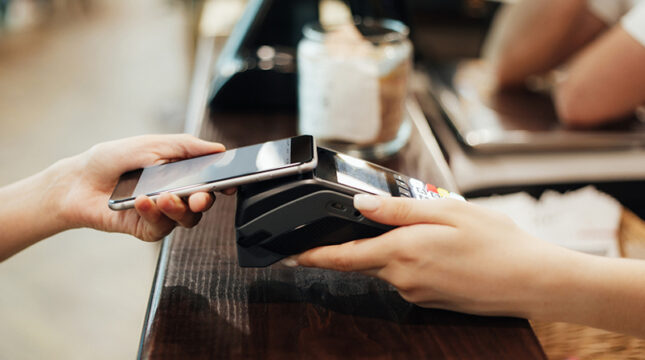If your customers pay you with PayPal, Venmo, Zelle, CashApp or other third-party payment platforms, there's a new IRS rule you need to prepare for.
At the moment, if you receive more than $20,000 and have more than 200 transactions per year, you will receive an IRS Form 1099-K from your clients or the third-party payment system you used, like Venmo and Paypal. Self-employment income documented on these annual 1099-K forms should be reported on your taxes.
Congress passed a new rule that lowered the minimum reporting threshold from $20,000 to $600 for one or more transactions.
However, recognizing the challenges with this transition, the IRS has delayed the implementation of the rule from the beginning of 2023 to now take effect on Jan. 1, 2024. The purpose of the delay is to give tax professionals, payment app companies, self-employed people and small businesses that use these apps time to prepare.
Here is some information that may help you prepare for the changing laws.

The law, explained
The new rule is intended to boost tax compliance because, according to the IRS, compliance is higher when people must report forms like Form 1099-K. The tax law itself is not changing, only the need to report earnings that are already taxable.
To whom does it apply? Small businesses or people who do part-time work should expect to see more annual 1099-K forms. But anyone sending money to friends to settle a restaurant tab or divvy up vacation costs — or those receiving a one-time payment for an online sale—need not worry.
As the IRS notes, it is not meant to track personal transactions like sharing the cost of a taxi, gifts for birthdays or holidays or paying a relative for a household bill.

What it means for users
Business owners and self-employed people will need to report Form 1099-K income on their taxes for every transaction covered by the rule. Every third-party platform they use should send users—and the IRS — a 1099-K form reporting any one-time transaction of $600 or more.
Suppose someone incorrectly receives a Form 1099-K for a personal transaction. In that case, the IRS recommends contacting the payment platform to correct the error or attaching an explanation to your tax return. The IRS' Taxpayer Advocate Service (TAS) expects the new rule to substantially increase the number of 1099-K forms people receive.
One way to make the most of the postponement is to delineate personal and business payments more clearly so personal payments are not mistakenly reported on a Form 1099-K at the end of the year.
The National Federation of Independent Business has called the new rule "burdensome," lobbied against the change, applauded its delay and urged its reversal.
How did the delayed implementation come about? Confusion on the part of taxpayers, no clear guidance from the IRS and a backlog within the IRS all contributed, according to the TAS within the IRS. Not only must taxpayers understand what to do, but tax preparers and software providers must have the necessary information to help taxpayers.

How to prepare
The new rule has been delayed — not dropped. So if you're a business owner expecting to file a Form 1099-K, make sure you understand what's required, and check in with whoever prepares your taxes to ensure they do too. Also, keep an up-to-date record of your electronic transactions and related financial documents.
Keep in mind that mistakes could trigger an IRS audit. Working with a professional bookkeeper or accountant might make sense.
PayPal and Venmo caution their users that they might be asked for tax information, such as a Social Security number or taxpayer ID, to continue using an account to accept payments for the sale of goods and services.
NEXT helps protect your business
Modern payment platforms are changing how small business owners do business. There’s no doubt that the business landscape is getting more digital every year. Even buying and managing insurance is moving online.
That’s where NEXT Insurance shines — we’re 100% online, and we make getting small business insurance easier than ever. You can go from quote to coverage in about 10 minutes, and everything you need — including your certificate of insurance — is available online.






